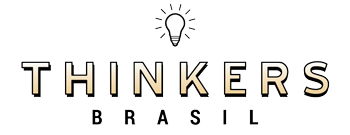How to Circumvent the Spending Cap and Implement Public Policies

Without a doubt, the Think Tank sector will be affected by an issue that is back on the table, the spending cap, a discussion especially important for universities and Think Tanks associated with governments.
The sector still does not have a joint lobbying structure to emphasize the importance of its spending, nor do we have a consolidated image among the population about what we do.
What is the discussion around the Spending Cap?
One of the mantras in administration is never to spend more than revenues. Technically, this is impossible due to lack of resources.
The only way to spend more than the revenues is for the Treasury to issue more Public Debt.
Opponents of “piercing the spending cap” argue that this is overburdening future generations and, worse, reducing the spending cap of future elected governments.
Mandates are only 4 years, overburdening a future government is disrespectful of the democratic pact. Taking out a debt to be paid in the same mandate is valid, not in the next.
Do more with less
Economists in general do not follow these precepts, so much so that “deficit financing” is a very debated topic in economic sciences, and most of the time, favorably.
The United States is currently discussing the same issue, only their rule is to establish a Public Debt Ceiling, a measure used by most countries.
In August 2022, the headline of Correio Brasiliense reads “Government studies setting a limit for debt instead of spending ceiling”.
One thing is certain. The probability of the government incorporating new public policy is much lower than before.
The government’s emphasis in the next 8 years will be how to maintain current public policies, but at a lower cost.
Opportunity for researchers:
Studies on spending ceilings will be very welcome.
Another opportunity for Think Tanks is to provide studies analyzing the cost-benefit of current public policies, known as “ex-post evaluations”.
There is a vast literature on the subject, but the beautiful work done by the Jones dos Santos Neves Institute stands out.
Acesse the GUIDE FOR EVALUATING PUBLIC POLICIES PDF (5,62MB) – Guide to guide and assist in the preparation of monitoring processes. Monitoring of public policy from indicators, bringing information on its performance.
What emphasizes another possibility for the coming years: focusing on state public policies, especially in states that are not facing problems of spending limitation.
These states can take advantage of the opportunity to implement efficient and innovative public policies, using the “moment” to show what is possible to achieve.
Think Tanks can help in this task by generating evidence, designing and monitoring efficient and innovative public policies.
The role of Think Tanks will be more important than ever, as they will be responsible for helping the government seize the moment and develop efficient and innovative public policies that ensure the well-being and prosperity of future generations.
Stephen Kanitz




